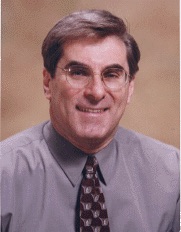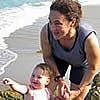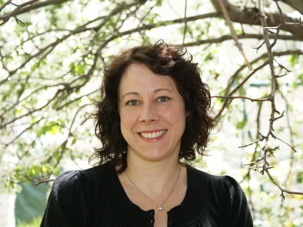CHILDES French-English GNP (Genesee-Nicoladis-Paradis) Corpus

|
Fred Genesee
Department of Linguistics
McGill University
fred.genesee@mcgill.ca
|

|
Elena Nicoladis
Department of Linguistics
University of Alberta
elenan@ualberta.ca
|

|
Johanne Paradis
Department of Linguistics
University of Alberta
johanne.paradis@ualberta.ca
website
|
| Participants: | 5 |
| Type of Study: | naturalistic |
| Location: | Canada |
| Media type: | video |
| DOI: | doi:10.21415/T5R61B |
Browsable transcripts
Download transcripts
Media folder
Citation information
Paradis, J., Nicoladis, E., & Genesee, F. (2000). Early emergence of
structural constraints on code-mixing: Evidence from French-English
bilingual children. Bilingualism: Language and Cognition, 3: 245-261.
Nicoladis, E., & Genesee, F. (1998). Parental discourse and
code-mixing in bilingual children. International Journal of
Bilingualism, 2: 85-99.
Paradis, J., LeCorre, M., & Genesee, F. (1998). The emergence of
tense and agreement in child L2 French. Second Language Research, 14:
pp. 227-257.
Paradis, J., & Genesee, F. (1996). Syntactic acquisition in
bilingual children. Studies in Second Language Acquisition, 18, 1-25.
Nicoladis, E., & Genesee, F. (1996). A longitudinal study of
pragmatic differentiation in young bilingual children. Language
Learning, 46, 439-464.
In accordance with TalkBank rules, any use of data from this corpus
must be accompanied by at least one of the above references.
Project Description
The children and their families all lived in Montreal or surrounding
communities. Metropolitan Montreal includes a population of
approximately 2.5 million people. It is a bilingual community in which
many individuals are bilingual in French and English and use both
languages on a daily basis. Moreover, evidence of French and English are
evident in the media (there are French and English TV stations,
newspapers, magazines, etc), on the street (in the form of signs and
announcements), and in stores (most store personnel in medium to large
stores can provide service in English and French). It is common to hear
English and French being spoken by people on the street, in buses,
stores, etc.
The children were being raised in homes where both languages were
used on a regular basis, usually each language was spoken predominantly
by one parent and the other language by the other parent. The children
and their parents were recorded in the children's homes -- often in the
living room, playroom, or kitchen. The recordings were done by an
assistant or graduate student who was otherwise uninvolved in the
interactions. The parents were asked to interact and talk with their
children as they normally would using whichever language(s) they would
normally use and to ignore the assistant as much as possible.
Twenty to thirty minutes of each session with each child were
transcribed using the CHAT transcription system. Transcription began
after the first five minutes of the session, in order to allow the
children to become comfortable with the taping equipment. In cases
where the children had produced less than 100 intelligible utterances in
the initial 20 minutes of data, transcription continued until at least
100 intelligible utterances had been recorded. Each utterance was coded
according to addressee (parent, other -- e.g., toy dog) and the language
of the utterance (French only, English only, mixed, neutral,
unintelligible. Mixed utterances consisted of utterances that contained
both English and French -- for example, the utterance, “ça go pas là”
(that doesn’t go there) was considered an instance of intra-utterance
mixing. A neutral utterance was one that could belong to either
language, such as proper names, “ah” and “oh”. Animal sounds that are
similar in English and French (i.e. “meow”) and the word “okay” were
also coded as neutral, as it is impossible to determine the language in
which these words were being produced. However, when a neutral word
appeared in an utterance of only one language, the entire utterance was
coded as being in that language. For instance, the utterance “oh a
truck” would be coded as English, whereas the sentence “oh un camion”
would be coded as French. Finally, utterances that were
incomprehensible were classified as unintelligible; these were sometimes
transcribed phonetically but no orthographic transcription was possible,
and they were often dropped from further analyses. All transcripts were
reviewed by one of two bilingual assistants who was a native speaker of
the primary language of the session. Any discrepancies were resolved by
discussion.
More detailed coding and analyses were undertaken in accordance with
the specific objectives of the research. The following is a list of
research that is based in part of in whole on these transcriptions. The
following publications were based, in part, on these transcripts:
- Genesee, F., Nicoladis, E., & Paradis, J. (1995). Language
differentiation in early bilingual development. Journal of Child
Language 22, 611-631.
- Genesee, F., Boivin, I., & Nicoladis, E. (1996). Talking with
strangers: A study of bilingual children's communicative competence.
Applied Psycholinguistics, 17, 427-442.
- Nicoladis, E., & Genesee, F. (1998). Parental discourse and
codemixing in bilingual children. International Journal of Bilingualism
2, 85-99.
- Paradis, J., Nicoladis, E., & Genesee, F. (2000). Early emergence
of structural constraints on code-mixing: evidence from French-English
bilingual children. Bilingualism: Language and Cognition 3, 245-26
Acknowledgements
The Social Sciences and Humanities Research Council,
Ottawa, funded this work through a grant to Fred Genesee.


